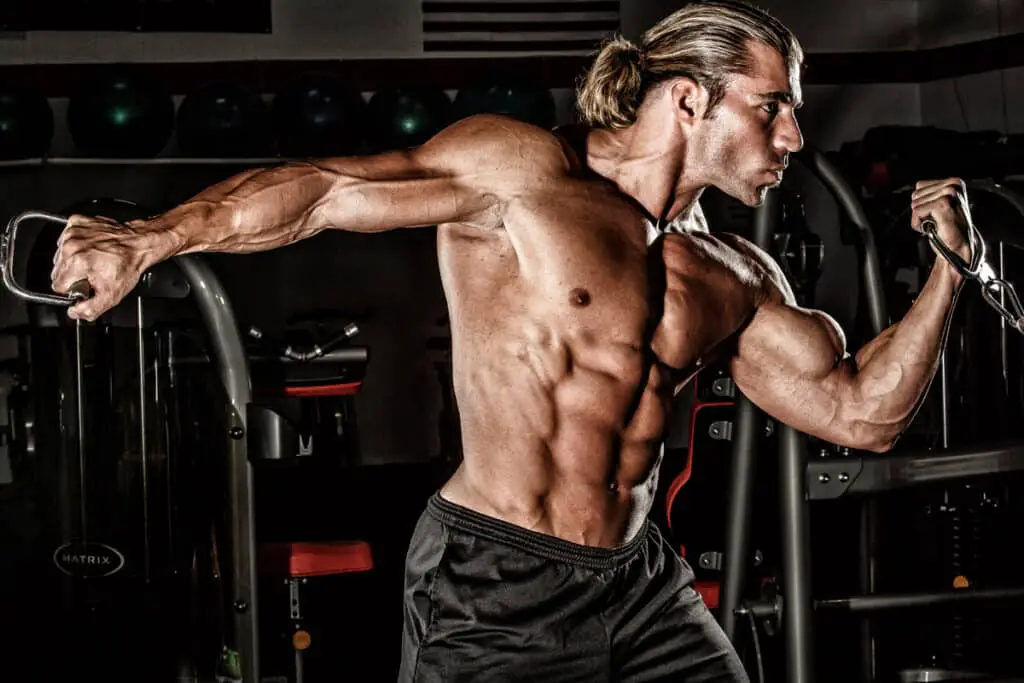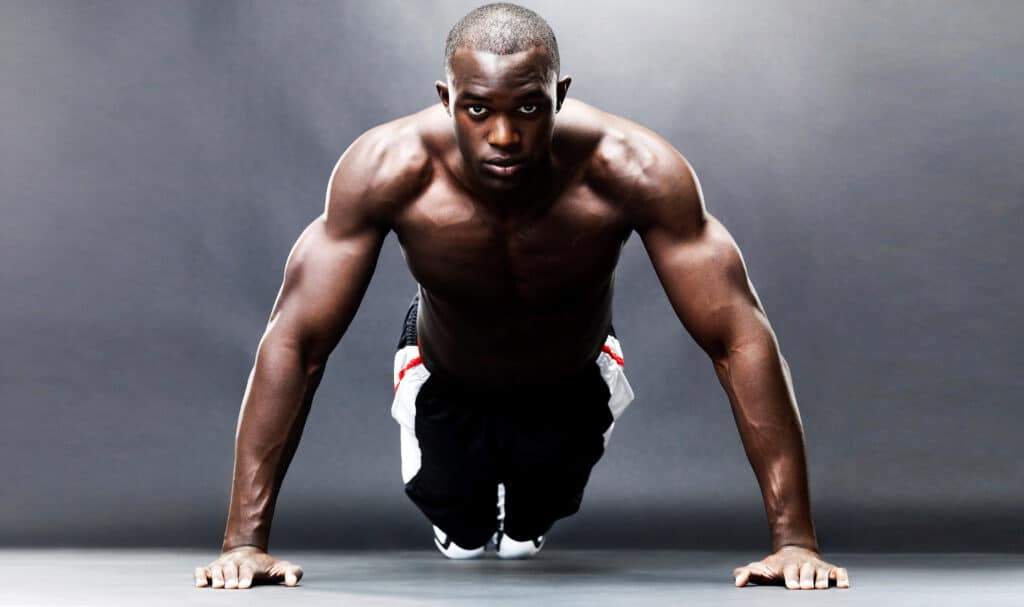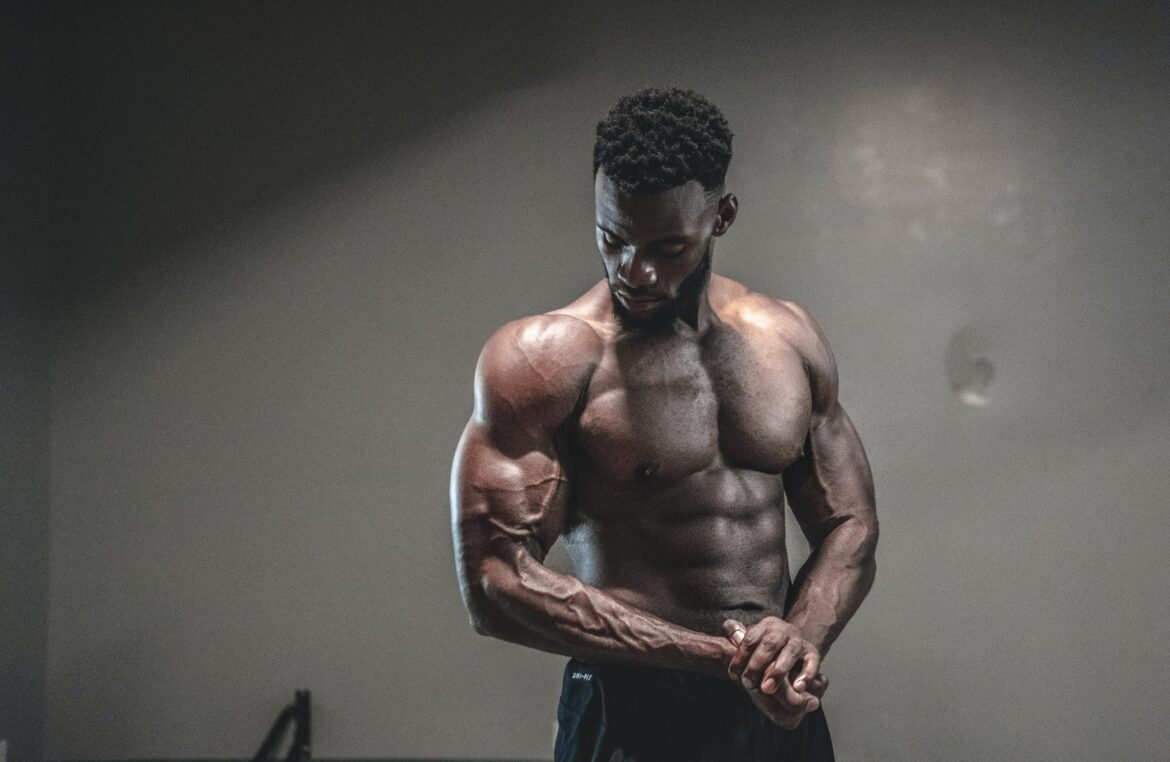Introduction
What Is Trt In Bodybuilding: TRT, or Testosterone Replacement Therapy, has gained significant attention in the world of bodybuilding and fitness. It refers to a medical treatment in which individuals with low testosterone levels receive supplemental testosterone to bring their hormone levels back within a normal range. In bodybuilding, testosterone is a critical hormone that influences muscle growth, strength, and overall athletic performance.
While TRT is primarily a medical intervention for men with clinically low testosterone, it has also sparked interest among bodybuilders and athletes seeking performance enhancements. When individuals experience low testosterone levels, they may struggle to build muscle, experience fatigue, and see a decline in their physical abilities. TRT is a way to address these issues by restoring testosterone levels to the normal range.
The use of TRT in bodybuilding is a topic of debate and controversy. Some argue that it provides an unfair advantage, as individuals on TRT may experience accelerated muscle growth and improved recovery. Others believe that it levels the playing field by addressing hormone imbalances. Medically supervised TRT is a legitimate treatment for those with a medical need, prescribed and monitored by healthcare professionals.

Why do bodybuilders take TRT?
What is testosterone replacement therapy (TRT)? Though testosterone replacement therapy is primarily used for treating low testosterone (T) levels, according to Healthline, it’s becoming increasingly popular for non-medical uses, including achieving higher energy levels and building muscle mass for bodybuilding.
Hormone Imbalance: Some bodybuilders may genuinely have low testosterone levels due to factors such as aging, medical conditions, or previous steroid use. TRT can help restore testosterone to normal levels and alleviate symptoms associated with low testosterone, such as fatigue and muscle loss.
Muscle Growth and Recovery: Testosterone plays a critical role in muscle growth, strength, and recovery. Elevated testosterone levels can promote muscle hypertrophy, making it an attractive option for those seeking to maximize their muscle gains.
Performance Enhancement: Many bodybuilders seek any advantage to improve their performance in competitions. TRT can potentially provide a competitive edge by enhancing strength, endurance, and overall athletic performance.
Quick Results: Some bodybuilders may opt for TRT because they believe it can expedite their progress in terms of muscle development and physical conditioning.
It’s essential to acknowledge that the use of TRT for performance enhancement is a contentious issue. It raises concerns about fair competition, ethical conduct, and adherence to the rules and regulations set forth by sports governing bodies. Seeking TRT solely for performance gains may involve ethical and legal considerations, as it may be perceived as exploiting a legitimate medical treatment for non-medical purposes.
Individuals considering TRT in bodybuilding should be aware of the potential consequences, both ethically and legally, and should engage in transparent and responsible practices to ensure they adhere to the rules and regulations governing their chosen sport. It’s advisable to consult with healthcare professionals and comply with the relevant guidelines to make informed decisions about TRT use.
Is TRT safe?
For the most part, TRT shouldn’t cause a significant jump in your red blood cell levels. But in some cases, TRT can make your red blood cell count too high. There’s a theoretical risk that this could lead to a higher risk of blood clots and heart attacks.
Medical Supervision: TRT should always be prescribed, monitored, and managed by a knowledgeable healthcare provider who can ensure proper dosing and address any potential side effects.
Individual Assessment: Before starting TRT, a thorough evaluation, including blood tests and a medical history review, is crucial to determine if TRT is medically necessary and safe for the individual.
Proper Dosage: Correct dosing is essential. Too much testosterone can lead to adverse effects, including mood swings, cardiovascular risks, and potential damage to the liver.
Monitoring: Regular monitoring of hormone levels, blood pressure, cholesterol, and other relevant health markers is necessary to adjust treatment and ensure safety.
Side Effects: Potential side effects of TRT can include acne, mood changes, fluid retention, and, in some cases, an increased risk of cardiovascular events. Monitoring helps identify and manage these issues.
Long-Term Considerations: The long-term safety of TRT is a topic of ongoing research. Some studies have raised concerns about potential risks, while others suggest it can be safe when appropriately managed.
Alternative Treatments: In some cases, addressing underlying causes of low testosterone (such as lifestyle factors or obesity) or exploring non-hormonal treatments may be safer and more suitable.
Is TRT steroids safe?
TRT is a safe medical treatment for a legitimate medical condition. Illegal steroid abuse is unsafe and is not used to treat or prevent any medical condition.
Testosterone Replacement Therapy (TRT) and anabolic steroids, often referred to as “steroids,” are related but distinct substances, and their safety profiles differ significantly.
TRT:
- TRT involves medically prescribed testosterone to treat individuals with clinically diagnosed low testosterone levels (hypogonadism).
- When used as prescribed by a qualified healthcare professional, TRT can be safe and effective in restoring testosterone levels to a normal range and alleviating symptoms associated with low testosterone.
- TRT is monitored closely by medical professionals, ensuring proper dosing and addressing any potential side effects.
Anabolic Steroids:
- Anabolic steroids are synthetic versions of testosterone used to enhance muscle growth, strength, and athletic performance.
- Anabolic steroid use, especially when abused or used without medical supervision, can pose serious health risks. Side effects may include cardiovascular issues, liver damage, mood swings, and hormonal imbalances.
- Anabolic steroid use for non-medical purposes, such as bodybuilding or athletic performance enhancement, is often associated with legal and ethical concerns.
Do bodybuilders need TRT?
Though testosterone replacement therapy is primarily used for treating low testosterone (T) levels, according to Healthline, it’s becoming increasingly popular for non-medical uses, including achieving higher energy levels and building muscle mass for bodybuilding.
Whether bodybuilders need Testosterone Replacement Therapy (TRT) is a subject of debate within the fitness community. It’s essential to distinguish between medical necessity and performance enhancement when considering TRT for bodybuilding:
Medical Necessity: TRT is medically indicated for individuals with clinically diagnosed low testosterone levels (hypogonadism) or related medical conditions. In such cases, TRT can help restore testosterone levels to the normal range, improve overall well-being, and alleviate symptoms like fatigue and muscle loss.
Performance Enhancement: Some bodybuilders may consider TRT to gain a competitive edge by boosting muscle growth, strength, and recovery. However, this raises ethical and legal questions, as using TRT solely for performance gains may be viewed as exploiting a legitimate medical treatment for non-medical purposes.
It’s crucial to undergo thorough medical evaluation and assessment to determine if TRT is medically necessary. Engaging in transparent and responsible practices is essential to maintain the integrity of sports and competition.
Bodybuilders should consider alternatives to TRT for performance enhancement, such as optimizing training, nutrition, and recovery strategies. Responsible and ethical approaches to bodybuilding focus on achieving results through hard work, dedication, and adherence to fair competition standards.
TRT among bodybuilders should be based on genuine medical necessity, as determined by healthcare professionals, rather than seeking hormonal interventions solely for performance benefits. Responsible and transparent practices should always guide decisions related to TRT and other performance-enhancing strategies.
Is TRT considered a steroid?
TRT, or testosterone replacement therapy, differs from anabolic steroids in the amount of testosterone used. TRT aims at treating the symptoms of low testosterone, whereas anabolic steroids contain testosterone in much higher doses to achieve bodybuilding effects quickly and easily.
TRT (Testosterone Replacement Therapy):
- TRT involves the medical administration of bioidentical testosterone to individuals with clinically diagnosed low testosterone levels (hypogonadism).
- It is a legitimate medical treatment prescribed by healthcare professionals to restore testosterone levels to the normal range and alleviate symptoms associated with low testosterone.
- TRT is used to address hormonal imbalances caused by medical conditions, aging, or specific medical treatments.
Anabolic Steroids:
- Anabolic steroids, often referred to simply as “steroids,” are synthetic versions of testosterone designed to enhance muscle growth, strength, and athletic performance.
- They are often used illicitly for non-medical purposes, such as bodybuilding or performance enhancement, and are associated with potential health risks.
- The use of anabolic steroids for non-medical purposes is illegal in many countries and is subject to regulatory controls due to concerns about health risks and fairness in sports.
While both TRT and anabolic steroids involve the use of testosterone, the key difference lies in their intended purpose and usage.
How much does TRT cost?
TRT costs range from $1,650 to $3,200 per year, depending on the type of TRT, the mode and frequency of administration, and a person’s insurance coverage.
Treatment Method: The method of administering TRT can impact the cost. Common methods include testosterone injections, topical gels or creams, patches, and pellet implants. Injections may be more cost-effective than some other methods.
Type of Testosterone: Different formulations of testosterone have varying costs. Generic forms of testosterone tend to be less expensive than brand-name options.
Frequency of Treatment: The frequency of TRT administration can vary based on an individual’s needs. Some may require weekly injections, while others might use longer-acting formulations that require less frequent dosing.
Insurance Coverage: Some health insurance plans may cover TRT if it is medically necessary. Coverage and copayments can vary significantly, so it’s important to check with your insurance provider.
Healthcare Provider: The cost of TRT may also be influenced by the fees charged by the healthcare provider, including consultation fees and follow-up appointments.
Location: The cost of healthcare services can vary based on your geographic location and local market conditions.
Does TRT damage sperm?
Along with an increase in hematocrit, a major adverse effect of TRT is the diminished sperm production because of the decreased intra-testicular concentration of testosterone and suppression of the hypothalamic-pituitary-gonadal (HPG) axis [2,3,4].
Testosterone Replacement Therapy (TRT) can have an impact on sperm production and fertility in some men, but the extent of this effect varies from person to person.
Suppression of Sperm Production: TRT can suppress the body’s natural production of testosterone and, in turn, sperm production. This is because the external supplementation of testosterone can signal the body to reduce or even halt its own testosterone production.
Reversible Effects: In many cases, the reduction in sperm production due to TRT is reversible. If TRT is discontinued, the body’s natural testosterone and sperm production typically resume, although it may take several months for sperm counts to return to normal.
Fertility Considerations: If fertility is a concern, individuals considering TRT should discuss their options with a healthcare provider. Some may choose to preserve sperm through sperm banking before starting TRT to ensure they have the option to conceive in the future.
Alternative Treatments: For men who are concerned about fertility, alternative treatments or protocols may be considered. These options can include different forms of TRT, such as selective estrogen receptor modulators (SERMs), which may have a less suppressive effect on sperm production.
What age can you start TRT?
While most men seeking testosterone therapy tend to be over the age of 40, the reality is that the effects of low testosterone can begin to present as early as a man’s 30s.
The age at which Testosterone Replacement Therapy (TRT) may be considered depends on individual circumstances and medical evaluation. Typically, TRT is not recommended for younger individuals unless there is a medical necessity.
Medical Necessity: TRT is primarily prescribed for individuals with clinically diagnosed low testosterone levels, often due to medical conditions like hypogonadism. In such cases, TRT may be recommended regardless of age if the benefits outweigh the risks.
Age-Related Decline: Testosterone levels naturally decline with age, but this decline alone does not necessarily indicate the need for TRT. Symptoms of low testosterone, such as fatigue, low libido, and muscle loss, should be assessed along with hormone levels before considering TRT.
Younger Individuals: In younger men, TRT is usually considered when there is a clear medical indication, such as hypogonadism caused by a medical condition, injury, or treatment. Using TRT solely for performance or cosmetic reasons is generally discouraged and can be associated with ethical and legal concerns.
Balanced Evaluation: The decision to start TRT should be based on a balanced evaluation of an individual’s symptoms, medical history, hormone levels, and overall health.

Conclusion
Testosterone Replacement Therapy (TRT) in bodybuilding is a topic that generates both interest and controversy within the fitness community. It’s crucial to recognize that TRT primarily serves as a medical intervention for individuals with clinically low testosterone levels. TRT can be a valuable treatment, helping those with hormonal imbalances regain normal testosterone levels and improve their overall quality of life.
When TRT is used for performance enhancement in bodybuilding, it enters a gray area ethically and legally. Some bodybuilders may seek TRT prescriptions to gain a competitive edge, as elevated testosterone levels can promote muscle growth, strength, and enhanced athletic performance. This raises questions about fair competition and the potential misuse of a legitimate medical treatment for non-medical purposes.
The controversy surrounding TRT in bodybuilding also involves ethical considerations. While some argue that individuals with genuine medical needs should not be stigmatized, others believe that those seeking TRT solely for performance gains may be exploiting the system. Striking a balance between addressing hormonal imbalances and maintaining the integrity of sports and competition is a complex challenge.


2 comments
… [Trackback]
[…] Read More on that Topic: thefitnessblogger.com/what-is-trt-in-bodybuilding/ […]
… [Trackback]
[…] Info on that Topic: thefitnessblogger.com/what-is-trt-in-bodybuilding/ […]